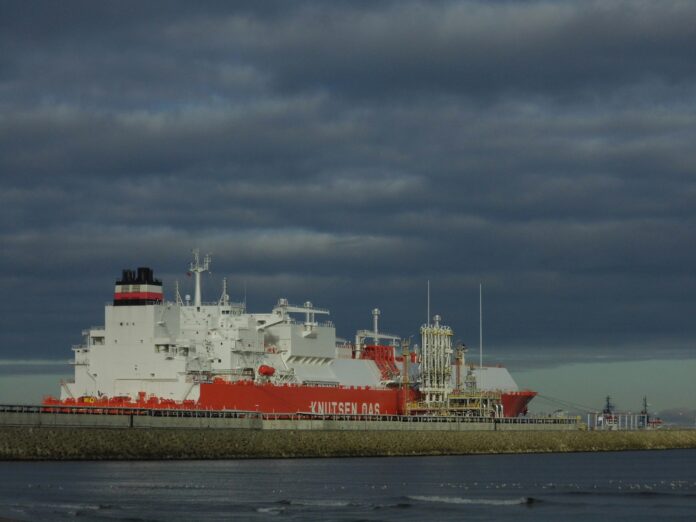With the June 24th announcement of its first-ever sanctions against Russian LNG shipments, the European Union has significantly escalated the geopolitical standoff between Moscow and Brussels. The move, which is intended to lessen Europe’s reliance on Russian energy, comes as tensions over a range of political and security concerns have grown.
The new round of sanctions bans the “re-export of Russian LNG shipments destined to third countries through EU ports, covering ship-to-ship and ship-to-shore transfers, as well as re-loading operations,” according to the Wall Street Journal.
Additionally, sanctions “include measures to restrict Russia’s use of its so-called shadow fleet of oil tankers. These vessels operate without western insurance and under third-country registration to avoid western sanctions against trading in crude above a certain price point,” reported the Financial Times.
Europe has long relied on Russia, one of the biggest natural gas exporters in the world, as a vital source of energy. But there has been tension in the relationship, especially since the annexation of Crimea in 2014 and the ensuing unrest in eastern Ukraine. These most recent sanctions are an important step toward the EU’s goal of gradually reducing its reliance on Russian gas.
The sanctions are anticipated to have a significant impact on the world’s energy markets. In order to secure alternative LNG supplies, European nations will probably have to look to exporters like Australia, Qatar, and the United States. This change may result in increased competition for available supplies and higher LNG prices globally.
A wider shift toward energy independence and resilience in the face of geopolitical challenges is reflected in the sanctions imposed on Russian LNG shipments, which represent a turning point in EU-Russian relations. The consequences of this choice will ripple through international markets and impact the direction of energy diplomacy as Europe continues to diversify its energy sources.



